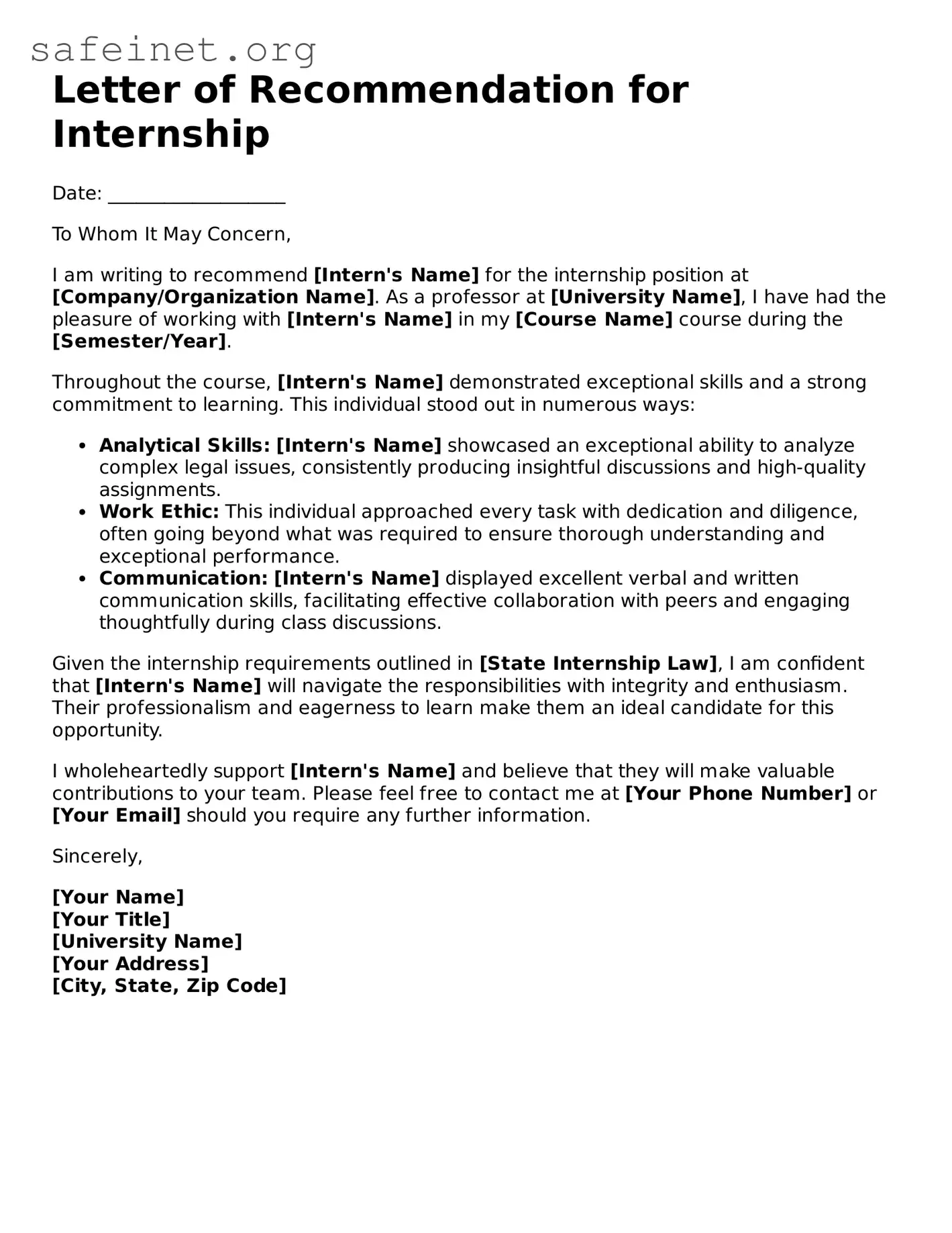What is a Letter of Recommendation for Internship?
A Letter of Recommendation for Internship is a formal document written by a mentor, professor, or employer that highlights a candidate's skills, experience, and character. It serves to support an individual's application for an internship by providing insights into their qualifications and potential contributions to the organization.
Who should I ask to write my Letter of Recommendation?
It is advisable to ask someone who knows you well in a professional or academic setting, such as a professor, employer, or internship supervisor. Choose individuals who can provide specific examples of your abilities and accomplishments, helping to paint a vivid picture of your strengths for the internship committee.
What information should I provide to the person writing my recommendation?
Provide the recommender with relevant details about the internship, such as the position, company, and specific responsibilities. It can also be helpful to share your resume, your goals for the internship, and any particular attributes or experiences you would like them to highlight in their letter.
How long should the Letter of Recommendation be?
A well-crafted Letter of Recommendation typically spans one page. This length allows the writer to provide sufficient detail while keeping the reader engaged. Brevity is key; however, the content should remain substantive and meaningful.
Is there a specific format I should follow for the Letter of Recommendation?
While there is no rigid format, a standard professional letter format is recommended. This includes a header with the writer's contact information, the date, and the recipient's information, along with a salutation, body paragraphs, and a closing signature. Maintaining a clear and formal tone throughout the letter is essential.
Should I provide a deadline for submitting the Letter of Recommendation?
Yes, it’s courteous and helpful to inform your recommender of any deadlines associated with the internship application process. This helps them manage their time effectively and ensures your application is submitted punctually.
Can I use the same Letter of Recommendation for multiple internships?
While it is possible to use the same Letter of Recommendation for multiple applications, it's advisable to tailor it for each specific internship. Different roles may require different emphasis on skills or experiences, so a customized approach enhances the impact of the letter.
What should I do if I do not receive a response after asking for a Letter of Recommendation?
If you do not receive a response within a week or so, it is appropriate to follow up politely. A friendly reminder, reiterating your appreciation for their support, can prompt them to remember your request without feeling pressured.
Can I see the Letter of Recommendation before it is submitted?
While it is not standard practice, asking if you can review the letter is permissible. Some recommenders may be open to sharing the draft or final version with you, but others may prefer to maintain confidentiality. Respect their wishes, and focus on building a good relationship based on trust and sincerity.
How important is a Letter of Recommendation for my internship application?
A Letter of Recommendation can play a significant role in your internship application. It provides potential employers with trusted insights into your capabilities and character, helping you stand out in a competitive applicant pool. A strong recommendation can be a deciding factor in securing the internship.
